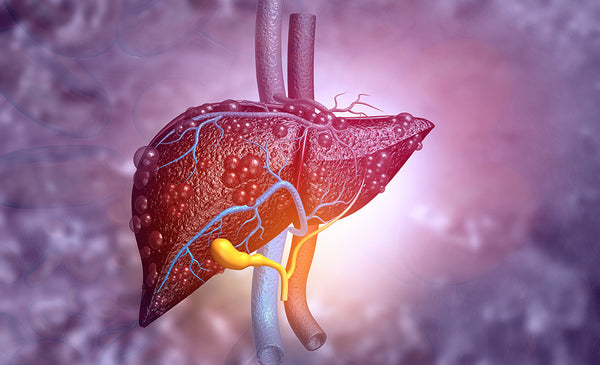Is Coffee OK?
Much has been written about the benefits and negative effects of coffee that it's easy to end up confused about whether it’s good for you or not.
Are you a coffee lover worried that you have to give up your favourite drink in order to get healthy?
Possibly, but perhaps not. Let’s delve a little further.
It’s important to note WHEN you choose to have your coffee, HOW MUCH of it you drink and what TYPE you favour. All these factors will play a role in whether or not you need to start managing your caffeine consumption in order to achieve better health.
Let’s look at both the advantages and disadvantages of coffee so you can make your own assessment and decide whether you should cut on your favourite beverage or not.
Advantages of coffee
Coffee can be favourable in many ways. Here are some of the upsides of coffee.
- Coffee is high in antioxidants and helps combat free radical damage in the body.
- The bitter properties of coffee stimulate receptors in the gut and liver to promote digestive enzyme release and healthy detoxification.
- Being a stimulant, coffee is great for boosting metabolism.
- If you do intermittent fasting, the polyphenols in black coffee encourage our cells to recycle and go through autophagy.
- Coffee enhances circulation.
- Coffee promotes clear concentration.
- Coffee acts as a memory and physical performance enhancer.
- Coffee can lower the risk of heart disease and type 2 diabetes.
Disadvantages of coffee
Most of the downsides of coffee revolve around its caffeine content and stimulating nature.
- Coffee isn’t ideal for anyone suffering from conditions associated with hormonal imbalance.
- Coffee isn’t recommended for individuals with thyroid issues such as Hashimoto's thyroiditis or hypothyroidism.
- Those with nervous system or adrenal gland insufficiency (HPA dysregulation) should lessen or totally avoid coffee.
- Sensitive individuals find that their blood glucose levels rise after coffee consumption.
- Instant coffee has more acrylamide (a toxic substance which results from heating) than brewed coffee.
- Instant coffee contains fewer nutrients and antioxidants than brewed versions.
- Coffee is one of the most highly-sprayed plants.
-
Most store-bought coffee (from coffee shops and cafés) contain more calories than a regular meal in light of the cream, syrups, sugar and flavourings added.
- Decaffeinated coffee products require chemicals to remove the caffeine.
Caffeine-free coffee alternatives
Healthier, caffeine-free options are available if you think you need to get a coffee fix:
- Rooibos (red bush tea)
- Dandelion root with chicory
- Turmeric latte
- Super mushroom latte
Alternatively, for a third of the amount of caffeine and still plenty of antioxidant power, go for a Golden Turmeric Chai, matcha latte or herbal white tea.
Detoxing from Coffee
This can always be a difficult process if you have more than 1 coffee per day. The trick is to substitute with Green Tea or Matcha which has naturally occurring caffeine. The caffeine is balanced out by the amino acid theanine which reduces the addictive principles of caffeine. After a week you can safely stop the green tea without any real caffeine withdrawals.
You can also add some Happy Greens which assist to cleanse your system.
Conclusion
If you don’t suffer from adrenal, thyroid or hormonal imbalances, it’s perfectly fine to have your coffee and drink it, too!
Just have your coffee during the first half of your day, so it doesn't interfere with the quality of sleep you get. Choose organic and brewed over instant varieties and skip the cream – go for nut milk instead.
Lastly, be sure to drink it away from meals so the tannins don't bind to your minerals and create deficiencies.
REFERENCES
Rebecca L Ferrini, Elizabeth Barrett-Connor. Caffeine Intake and Endogenous Sex Steroid Levels in Postmenopausal Women The Rancho Bernardo Study. American Journal of Epidemiology. Volume 144, Issue 7, 1 October 1996, Pages 642–644.
https://doi.org/10.1093/oxfordjournals.aje.a008975
Simone Cappelletti, Piacentino Daria et al, and Mariarosaria Aromatario. Caffeine: Cognitive and Physical Performance Enhancer or Psychoactive Drug? Curr Neuropharmacol. 2015 July; 13(4):554.
https://www.ncbi.nlm.nih.gov/pmc/articles/PMC4462044/
Goto, Atsushi et al. “Coffee and caffeine consumption in relation to sex hormone-binding globulin and risk of type 2 diabetes in postmenopausal women.” Diabetes vol. 60,1 (2011): 269-75.
https://diabetes.diabetesjournals.org/content/60/1/269
Jiang-nan Wuae, et al. Coffee consumption and risk of coronary heart diseases: A meta-analysis of 21 prospective cohort studies. International Journal of Cardiology. Volume 137, Issue 3, November–December 2009, Pages 216-225. https://doi.org/10.1016/j.ijcard.2008.06.051
Acheson KJ, Zahorska-Markiewicz B, Pittet P, Anantharaman K, Jéquier E. Caffeine and coffee: their influence on metabolic rate and substrate utilization in normal weight and obese individuals. Am J Clin Nutr. 1980;33(5):989-997. https://doi.org/10.1093/ajcn/33.5.989
Institute of Medicine (US) Committee on Military Nutrition Research; Marriott BM, editor. Food Components to Enhance Performance: An Evaluation of Potential Performance-Enhancing Food Components for Operational Rations. Washington (DC): National Academies Press (US); 1994. 20, Effects of Caffeine on Cognitive Performance, Mood, and Alertness in Sleep-Deprived Humans.
https://www.ncbi.nlm.nih.gov/books/NBK209050/






















